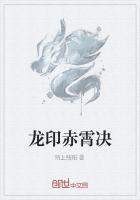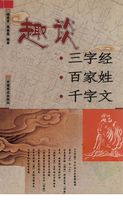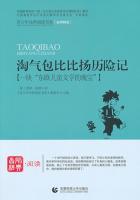Within this favored realm, so prodigally endowed and strongly fortified by nature, the Moslem wealth, valor, and intelligence, which had once shed such a lustre over Spain, had gradually retired, and here they made their final stand. Granada had risen to splendor on the ruin of other Moslem kingdoms, but in so doing had become the sole object of Christian hostility, and had to maintain its very existence by the sword. The Moorish capital accordingly presented a singular scene of Asiatic luxury and refinement, mingled with the glitter and the din of arms. Letters were still cultivated, philosophy and poetry had their schools and disciples, and the language spoken was said to be the most elegant Arabic. A passion for dress and ornament pervaded all ranks. That of the princesses and ladies of high rank, says Al Kattib, one of their own writers, was carried to a height of luxury and magnificence that bordered on delirium. They wore girdles and bracelets and anklets of gold and silver, wrought with exquisite art and delicacy and studded with jacinths, chrysolites, emeralds, and other precious stones. They were fond of braiding and decorating their beautiful long tresses or confining them in knots sparkling with jewels. They were finely formed, excessively fair, graceful in their manners, and fascinating in their conversation; when they smiled, says Al Kattib, they displayed teeth of dazzling whiteness, and their breath was as the perfume of flowers.
The Moorish cavaliers, when not in armor, delighted in dressing themselves in Persian style, in garments of wool, of silk, or cotton of the finest texture, beautifully wrought with stripes of various colors. In winter they wore, as an outer garment, the African cloak or Tunisian albornoz, but in the heat of summer they arrayed themselves in linen of spotless whiteness. The same luxury prevailed in their military equipments. Their armor was inlaid and chased with gold and silver. The sheaths of their scimetars were richly labored and enamelled, the blades were of Damascus bearing texts from the Koran or martial and amorous mottoes; the belts were of golden filigree studded with gems; their poniards of Fez were wrought in the arabesque fashion; their lances bore gay bandaroles; their horses were sumptuously caparisoned with housings of green and crimson velvet, wrought with silk and enamelled with gold and silver.
All this warlike luxury of the youthful chivalry was encouraged by the Moorish kings, who ordained that no tax should be imposed on the gold and silver employed in these embellishments; and the same exxfxception was extended to the bracelets and other ornaments worn by the fair dames of Granada.
Of the chivalrous gallantry which prevailed between the sexes in this romantic period of Moorish history we have traces in the thousand ballads which have come down to our day, and which have given a tone and coloring to Spanish amatory literature and to everything in Spain connected with the tender passion.
War was the normal state of Granada and its inhabitants; the common people were subject at any moment to be summoned to the field, and all the upper class was a brilliant chivalry. The Christian princes, so successful in regaining the rest of the Peninsula, found their triumphs checked at the mountain-boundaries of this kingdom. Every peak had its atalaya, or watch-tower, ready to make its fire by night or to send up its column of smoke by day, a signal of invasion at which the whole country was on the alert. To penetrate the defiles of this perilous country, to surprise a frontier fortress, or to make a foray into the Vega and a hasty ravage within sight of the very capital were among the most favorite and daring exploits of the Castilian chivalry. But they never pretended to hold the region thus ravaged; it was sack, burn, plunder, and away; and these desolating inroads were retaliated in kind by the Moorish cavaliers, whose greatest delight was a "tala," or predatory incursion, into the Christian territories beyond the mountains.
A partisan warfare of this kind had long existed between Granada and its most formidable antagonists, the kingdoms of Castile and Leon.
It was one which called out the keen yet generous rivalry of Christian and Moslem cavaliers, and gave rise to individual acts of chivalrous gallantry and daring prowess; but it was one which was gradually exhausting the resources and sapping the strength of Granada. One of the latest of its kings, therefore, Aben Ismael by name, disheartened by a foray which had laid waste the Vega, and conscious that the balance of warfare was against his kingdom, made a truce in 1457 with Henry IV., king of Castile and Leon, stipulating to pay him an annual tribute of twelve thousand doblas or pistoles of gold, and to liberate annually six hundred Christian captives, or in default of captives to give an equal number of Moors as hostages,--all to be delivered at the city of Cordova.*
*Garibay, Compend., 1.17, c. 3.
The truce, however, was of a partial nature, with singular reservations. It did not include the Moorish frontier toward Jaen, which was to remain open for the warlike enterprises of either nation; neither did it prohibit sudden attacks upon towns and castles, provided they were mere forays, conducted furtively, without sound of trumpet or display of banners or pitching of camps or regular investment, and that they did not last above three days.*
*Zurita, Anales de Aragon, 1. 20, c. 42; Mariana, Hist. de Espana 1.
25, c. 1; Bleda, Coron. de los Moros, l. 5, c. 3.
Aben Ismael was faithful in observing the conditions of the truce, but they were regarded with impatience by his eldest son, Muley Abul Hassan, a prince of a fiery and belligerent spirit, and fond of casing himself in armor and mounting his war-horse. He had been present at Cordova at one of the payments of tribute, and had witnessed the scoffs and taunts of the Christians, and his blood boiled whenever he recalled the humiliating scene. When he came to the throne in 1465, on the death of his father, he ceased the payment of the tribute altogether, and it was sufficient to put him into a tempest of rage only to mention it.
"He was a fierce and warlike infidel," says the pious Fray Antonio Agapida; "his bitterness against the holy Christian faith had been signalized in battle during the lifetime of his father, and the same diabolical spirit of hostility was apparent in his ceasing to pay this most righteous tribute."















